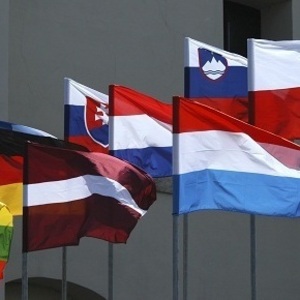European Commission widens application of anti-dumping duty

June 4, 2014
BY Holly Jessen
The European Commission came to a decision June 4 to apply anti-dumping duties on all U.S. ethanol coming to the European Union through Norway, according to ePURE, the European Renewable Ethanol Association.
Anti-dumping duties were imposed on imported U.S. fuel for a period of five years beginning in February 2013. This followed an anti-dumping investigation that began October 2011.In January, ePURE filed a complaint with the European Commission, saying that a new pattern of trade had emerged, with U.S. ethanol going to Norway, where it was blended with gasoline and then exported to the EU without anti-dumping duties levied by EU customs.
Advertisement
Advertisement
As a result of the recent decision ePURE has dropped its request for an anti-circumvention investigation, the trade association said in a press release. The group says it shows that the European Commission and Member States agree with ePURE, that the “sole objective of this operation in Norway was to circumvent anti-dumping duties” on ethanol originating in the United States. “An anti-circumvention investigation by the European Commission would have taken much more time to deliver results,” said Rob Vierhout, ePURE’s secretary-general. “The solution that has now been found puts an immediate end to these unfair trade practices and shields the EU industry from further injury.”
In May of last year the Renewable Fuels Association and Growth Energy filed a complaint in EU court, challenging the decision to impose an anti-dumping duty. That case is ongoing. The two groups issued a group statement about the recent decision. “We believe the European Union anti-dumping tariff on ethanol violates decades of international trade law,” they said. “The anti-dumping duties are not justified and are being challenged in court. When all the facts are examined, we are confident the WTO will find the U.S. was not dumping and should not be subject to the duties.”
Advertisement
Advertisement
Bob Dinneen, president and CEO of the RFA further told Ethanol Producer Magazine that the decision concerning U.S. ethanol exported to Norway was a “perfunctory and routine decision” that has to do with where the product was produced originally and “does not speak to the credibility of the underlying anti-dumping tariff.”
Related Stories
The U.S. Energy Information Administration maintained its forecast for 2025 and 2026 biodiesel, renewable diesel and sustainable aviation fuel (SAF) production in its latest Short-Term Energy Outlook, released July 8.
XCF Global Inc. on July 10 shared its strategic plan to invest close to $1 billion in developing a network of SAF production facilities, expanding its U.S. footprint, and advancing its international growth strategy.
U.S. fuel ethanol capacity fell slightly in April, while biodiesel and renewable diesel capacity held steady, according to data released by the U.S. EIA on June 30. Feedstock consumption was down when compared to the previous month.
XCF Global Inc. on July 8 provided a production update on its flagship New Rise Reno facility, underscoring that the plant has successfully produced SAF, renewable diesel, and renewable naphtha during its initial ramp-up.
The U.S. EPA on July 8 hosted virtual public hearing to gather input on the agency’s recently released proposed rule to set 2026 and 2027 RFS RVOs. Members of the biofuel industry were among those to offer testimony during the event.
Upcoming Events










